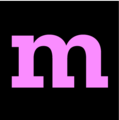Increasing Open Source in Academia
Code is Science | An Open Project Spotlight
Yo Yehudi (@yoyehudi) is a Software Engineer at InterMine in the University of Cambridge. Yo was selected to join our current round of Mozilla Open Leaders with her project, Code is Science. I had the pleasure of meeting Yo at MozFest where it was easy to see her passion for open source and open science.
I interviewed Yo to learn more about Code is Science and how you can help.
What is Code is Science?
Code is Science is a project dedicated to increasing open source code in science — evangelising the importance to people who write code in science, even if they don’t consider themselves to be coders! We also aim to bring around culture change by trying to influence academic journals and funders who can help set the trend by making it easy for scientific code to be open source, ideally even requiring that all new code papers have the source code peer reviewed and reproducible.
Why did you start Code is Science?
I think it all started out when I spotted a question trending on Academia Stack Exchange, where a PhD student was expressing surprise that someone reviewing their paper about scientific software might want to run the code. This totally blew my mind — if someone had submitted a math paper, you couldn’t expect for it to pass peer review without the proofs, so how could someone think it might be possible to publish a paper about code without having the code peer reviewed?! After all, if the code is wrong, the science produced by the code is wrong too.
What are you most proud of accomplishing at MozFest?
I really loved running a MozFest session! The session plan was generally pretty fluid and post-it-note based, first of all brainstorming ideas why people don’t write open source code in science, and then trying to think what we could do about it. We emerged with a massive pile of post-it-note ideas, my favorite of which was to build a manifesto: something to hold up to scientific funders and journals, to say: This is what we think things should be like.
The other great thing about MozFest was definitely the networking! I got to meet so many like-minded people, and it was great to explain the project and see the light dawn in people’s eyes when I got to the main point: bad code equals bad science.
How are you continuing the momentum after MozFest?
I’ve been utterly amazed with how willing people are to help out with this project — I keep on getting emails from volunteers who are interested in participating or helping out, and who suggest great ideas, even offering to run trials of internal code reviews or modifying / adding logos and printing stickers locally to distribute in their area.
At OpenConCam, I proposed another focus group on the topic and was lucky enough to get a completely different group of people discussing the issue, including people from scientific journals, and a bunch of new ideas! My favourite might have been the way to tackle private data: you can’t always publish your data due to privacy issues, but it’s totally possible to generate dummy data that allows you to run your code successfully without revealing anything (like a medical patient’s private details, for example!)
I’m also excited to share that I’ll be continuing to work on the project as part of my Software Sustainability Institute fellowship, which will be starting in 2018! My main focus will be attending events to teach others about this issue and bring around culture shift. Open should be not only the default, but intentionally designed into the way we work. If you know of an event I could attend to run a focus group, talk, or hackathon about open source code in science, please drop me a line!
How has your project been impacted by Mozilla Open Leaders?
Radically, and for the good. I’ve worked full time on an open source project for the last couple of years, but Mozilla Open Leaders has helped teach me to harness the power of a very willing, very interested community. Who knew that all you had to do was ask politely, make it easy for others to contribute…. And they’d come? It made me think about the meaning of “open” in a whole new way.
How can others help you continue the work on Code is Science?
A couple of ways! If you only have 30 seconds, please star my project on GitHub. I’m trying to reach 100 stars so I can sign up for Open Collective.
I’m also working on creating a database of journals that require open source code. Right now it’s in early stages, but I’m particularly interesting in getting an Outreachy intern to work on it, giving them the chance to learn about working on open source and helping the database get its feet off the ground. Outreachy is a group dedicated to increasing diversity in open source software — if you’re interested in helping towards the cost of sponsoring an intern for three months, I’d love to hear from you! If you are technically inclined and would like to pitch on on the user interface or database sides, please pop over to the Code is Science github issues page and leave a comment!
What meme or gif best represents your project?
I just made it right now:
Mozilla Open Leaders offers mentorship and training on working open. Join a cohort of project leads fueling the Internet Health movement. Receive mentorship and training through the Mozilla community in this 14-week online program on working open. Apply today!
